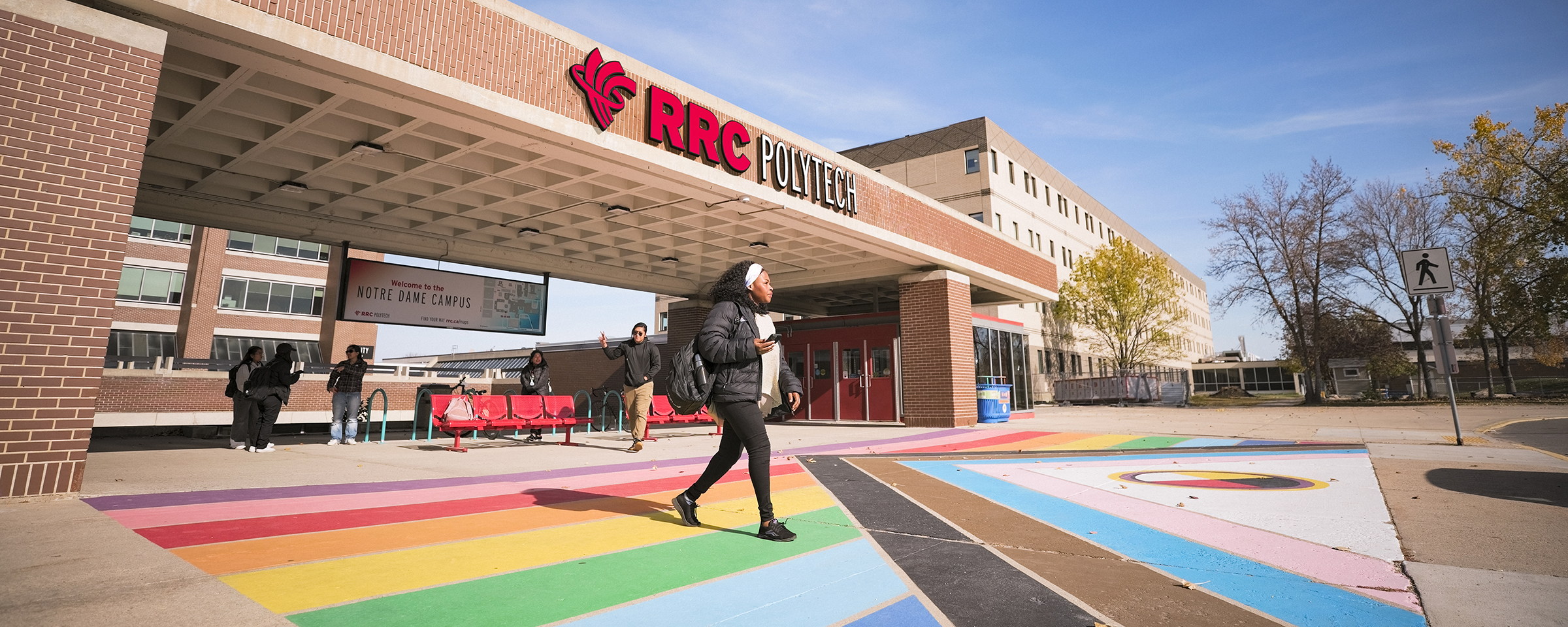Simulation Lab Enhances MLS Program Training
Diagrams and PowerPoint presentations have been replaced by real-life technology thanks to a new simulation lab that's been added to Red River College's Medical Laboratory Sciences (MLS) training curriculum for biochemistry.
This innovative new teaching approach — the result of a partnership with Diagnostic Services of Manitoba Inc. (DSM) and Roche, a diagnostic vendor — provides RRC students with a more dynamic learning experience and better prepares them for both their on-site practicum and eventual employment.
"I was surprised that by just changing the way you teach and how you present your information, you can dramatically alter how we — the students — perceive the topic and our recall ability," said Anthony Villanueve, a med lab technologist-in-training who was among the first group of RRC students to use the simulation equipment.
"The activities stimulated our minds and made us think, instead of just absorbing. Instead of asking (us) what we would do in a situation, the situation was created and we were asked to fix it."
The introduction of simulated training to the College's MLS program was the brainchild of DSM's former CEO, Dr. Jim Dalton, who saw a need to address the challenges labs faced in providing adequate practicum training.
As of March 2011, second-year students at RRC have spent a week in the simulation lab as part of an 11-week biochemistry practicum that takes place within an actual DSM facility. By expanding their knowledge base, students can make more of their clinical experience — by increasing the focus on specific lab processes and sample data interpretation — and also allows them to begin their clinical placements with greater confidence.
"The controlled environment of the simulation lab allows students to explore the instrument software, do their own calibrations, then run controls and samples," said DSM Clinical Instructor Joanne Goldstone, who helped developed the curriculum. "In the simulated environment, students are not required to do things quickly. They can explore, discover and even make mistakes while learning."
Click here for information.
